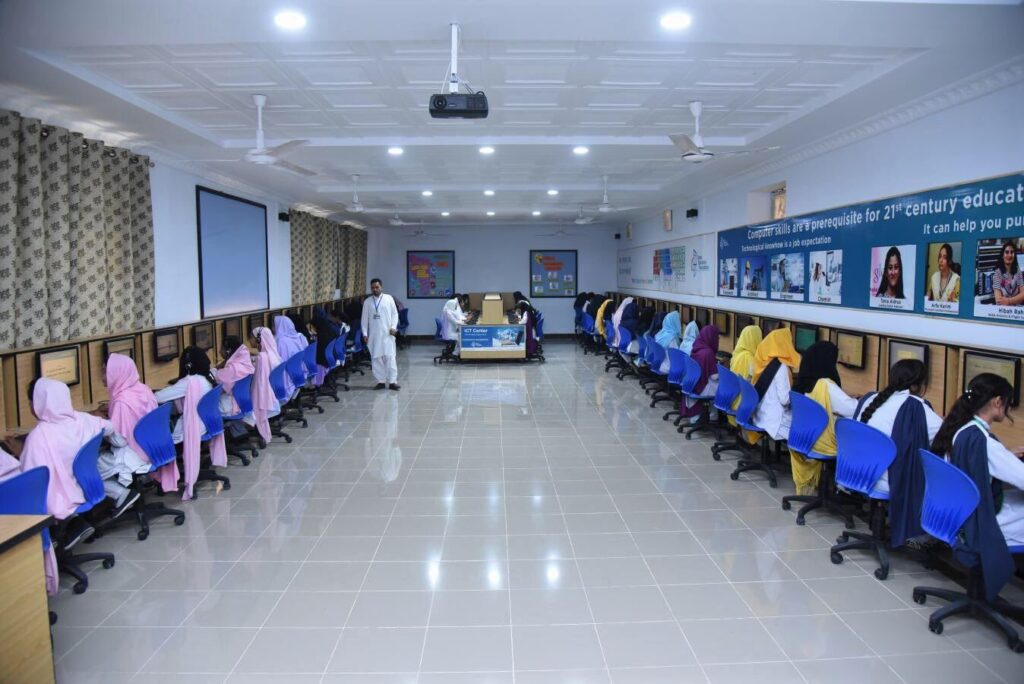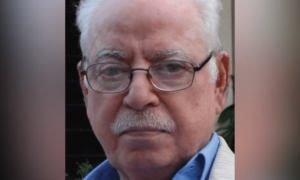In the not-so-distant past, education was a story confined within the four walls of a classroom. It was a narrative defined by the turn of textbook pages, the sound of chalk on a blackboard, and the physical presence of a teacher. However, the digital age has ushered in a new chapter in this narrative, a chapter that tells the story of how technology is revolutionizing education on a global scale. This transformation transcends borders and traditions, and nowhere is it more evident than in Pakistan.
In Pakistan, a quiet revolution is unfolding, transforming the education landscape. Traditional barriers to quality education, such as limited access to resources and skilled educators, are slowly fading away. Online education has emerged as a lifeline, reaching from the bustling urban centers to the farthest corners of the country, providing knowledge to those who once grappled with limitations beyond their control.
In this interconnected world, social media platforms have become hubs of knowledge sharing. Pakistan is at the forefront of this educational revolution, utilizing platforms like Facebook, TikTok, Instagram, and Twitter to break down access barriers. These platforms, originally created for sharing personal moments and thoughts, have evolved into conduits for a unique form of sharing—one that disseminates knowledge, sparks discussions, and brings together learners from all walks of life.
At the crossroads of education and technology, a groundbreaking partnership has emerged, exemplifying the remarkable potential of digital platforms. TikTok, in collaboration with Edkasa and Lahore University of Management Sciences (LUMS), has given birth to the ExamReady initiative. Focusing on STEM education, this collaborative campaign addresses the persistent issue of educational inequalities in Pakistan. ExamReady’s core lies in its educational videos, spanning subjects such as Chemistry, Biology, Physics, and Mathematics. These videos have triggered a paradigm shift in how students learn, with millions of views and scholarships for deserving students, demonstrating TikTok’s commitment to democratizing education and making a tangible difference.
What sets ExamReady apart is not just its objective but also its innovative method. The educational videos are not ordinary lectures; they are beacons of light guiding students through the intricate corridors of complex formulas, concepts, and equations. These videos combine entertainment and education, turning learning into an immersive and enjoyable experience. They unfold as captivating narratives enriched with real-life examples, making seemingly insurmountable learning barriers conquerable. By translating abstract theories into relatable real-world instances, ExamReady introduces a fresh dimension to education. Daunting formulas find their reflection in everyday occurrences, and enigmatic concepts morph into familiar stories. This innovative approach drives exceptional engagement and retention, extending its impact to marginalized provinces like Sindh, Balochistan, and KPK.
Crucially, ExamReady’s influence transcends urban centers, reaching even the remotest corners of Pakistan. TikTok’s expansive reach illuminates the path to knowledge for those previously denied its light. This marks a new era of education, one that surpasses boundaries and levels the playing field for students across the nation. The impact of ExamReady is felt not only within metropolitan classrooms but also in towns, villages, and communities, shaping lives and futures.
Leveraging the essence of short-form videos, TikTok ingeniously adapts its features to create an innovative mode of education. Complex subjects that once appeared distant are distilled into captivating, bite-sized lessons, making learning engaging and immersive.
The integration of artificial intelligence (AI) in education is another transformative force. Khan Academy, a non-profit organization, has harnessed the power of AI through its cutting-edge tool, Khanmigo. Powered by GPT-4, Khanmigo is not just a tool; it is a learning companion that transforms the role of AI from mere automation to that of a tutor. Khanmigo fosters critical thinking skills among students while providing contextual support for Khan Academy’s content. As it gradually rolls out, it has the potential to become a virtual mentor, guiding learners through complex concepts, offering explanations, and adapting the learning journey to suit each student’s pace and learning style. This personalized approach has the potential to revolutionize education in Pakistan, where classrooms can be overcrowded, and resources constrained.
AI applications like Khanmigo complement the role of educators by automating certain tasks, freeing up teachers to focus on inspiring and guiding students. Educators can leverage AI insights to gain a deeper understanding of individual learning patterns and preferences, enabling them to tailor their teaching strategies effectively. Moreover, these AI applications are a significant boon for students in rural and underserved areas of Pakistan, bridging the gap in access to quality education.
While the benefits of technology-driven learning are vast and undeniable, challenges persist. Ensuring reliable internet access, maintaining student engagement in virtual environments, and safeguarding against misinformation and content quality issues are ongoing concerns. Balancing technology’s promises with its pitfalls is crucial.
As the digital revolution continues to unfold, the horizon of education beckons with promises of unprecedented innovation and transformation. From virtual reality classrooms that immerse students in new worlds to AI systems that cater to individual learning needs, the next frontier of education is replete with uncharted territory. However, ensuring accessibility, equity, and quality remains essential.
The fusion of technology and education is reshaping the learning landscape, breaking down barriers, and casting a radiant light on the path to knowledge. This journey is about an inclusive, accessible, and empowering education for all. As we embrace this future, let’s ensure that innovation benefits everyone. The symphony of progress continues, leading us toward a future where technology and knowledge unite to create a brighter world of education for generations to come.
Aniq ur Rehman
- This author does not have any more posts.







